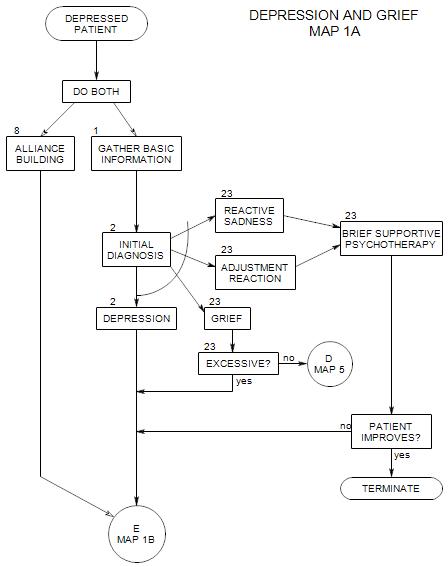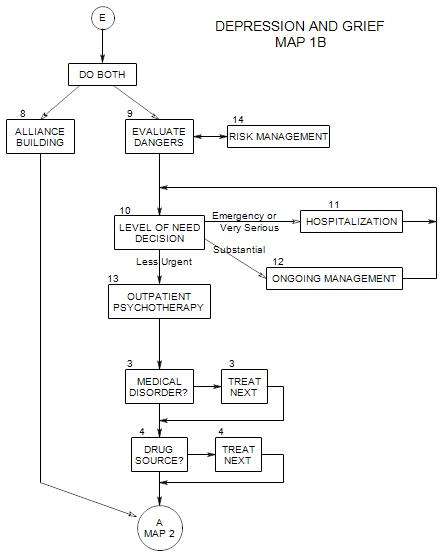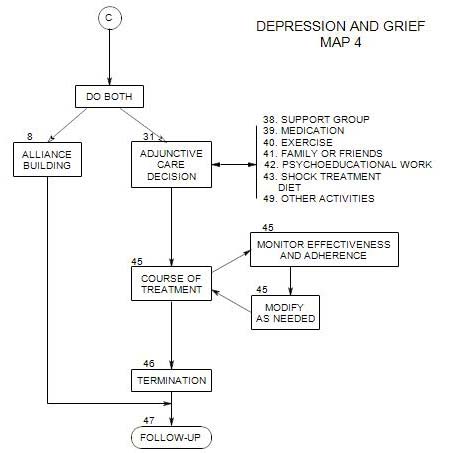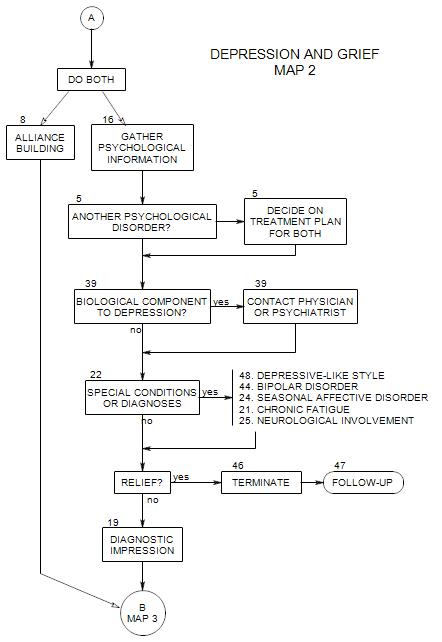
SECTIONS: 5 | 8 | 16 | 19 | 21 | 22 | 24 | 25 | 39 | 44 | 46 | 47 | 48
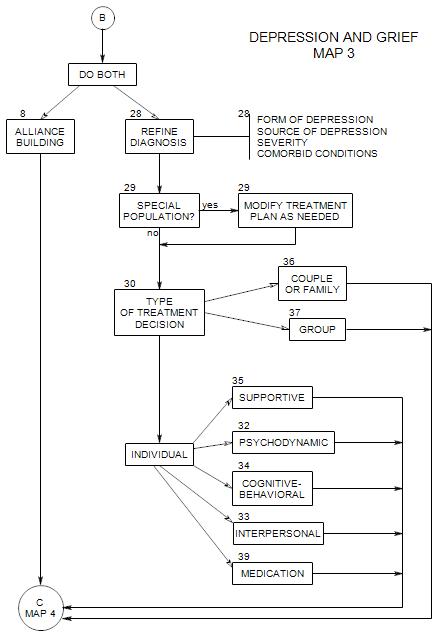
SECTIONS: 8 | 28 | 29 | 30 | 32 | 33 | 34 | 35 | 36 | 37 | 39
-
Follows from Section 22 on Map 2.
Note that in a person with a bipolar disorder, the course of treatment may be affected by whether the first episode is one of depression or mania. This is compounded by other factors: whether the first episode is noticed.
With a bipolar patient, you might be more biological in your thinking, and more cognitive [reframing or psychoeducational] in your treatment approach. According to First and Tasman (2010, pp. 315-321), research on the treatment of bipolar disorders has focused on medication as the primary treatment modality and psychotherapy as adjunctive. Types of psychotherapy studied have included partners therapy, group, interpersonal, psychoeducational, cognitive-behavioral, and family therapy.
Medication research (First and Tasman, 2010, p.316) has identified a number of drugs that are helpful in control of the manic phase of the illness. However, only lithium has been effective in managing the acute depressive phase, and only lithium and lamotrigine have been shown to be effective in prevention of the acute phases. There is a danger in using standard antidepressants, in that they can precipitate a manic or hypomanic episode.
Medication management can also be a problem, because the patient may like the manic phase. Medication may lead to an emotional “flatness” that the patient finds empty and unsatisfying. Patients feel productive in the manic phase.
One possible treatment for a bipolar patient is to have someone record the patient’s behavior and speech during the manic phase, so that he/she can experience it at another time. There may be a tremendous volume of production with very poor quality. The patient may feel invincible and highly creative. If the patient can be helped to appreciate that the experience of mania is quite different from the reality, there may be greater willingness to control the disorder.
